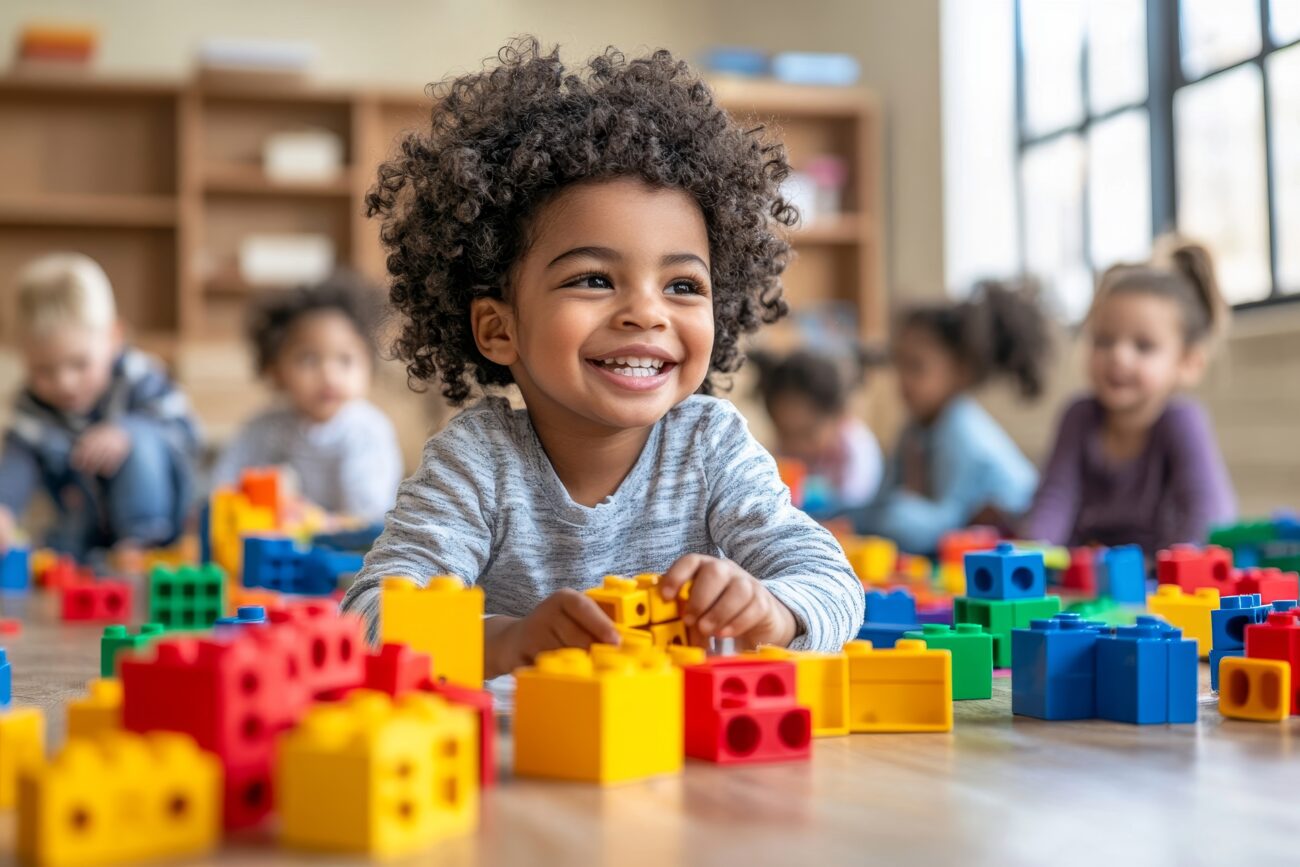
Discover how play shapes childhood development and transforms learning experiences, helping every child reach their full potential.
Welcome to the World of Play-Based Learning!
Children at play are explorers on an amazing journey of discovery. Let’s explore how both structured and unstructured play create powerful learning moments that shape young minds.
Understanding Play Types 🎮
Let’s explore the different ways children learn through play:
Structured Play
Look for these moments:
- Children following specific game rules
- Guided learning activities
- Activities with clear learning goals
Unstructured Play
Watch the magic happen when children:
- Create their own imaginative worlds
- Explore freely with materials
- Lead their own discoveries
Benefits for Children 🌟
Cognitive Growth
Watch young minds bloom through:
- Problem-solving adventures
- Memory-building games
- Creative innovation
- Exploring new challenges
Social Skills Blossoming
See children develop:
- Teamwork through group play
- Communication during role-play
- Peaceful conflict resolution
- Empathy and understanding
Emotional Development
Play helps children:
- Build inner strength
- Express and manage feelings
- Find joy and reduce stress
- Grow self-confidence
Implementation Guide 📋
For Teachers
Create magical learning spaces with these strategies:
- Environment Setup
- Design welcoming play areas
- Keep materials fresh and exciting
- Embrace creative exploration
- Daily Integration
- Begin with short play sessions
- Document growth and learning
- Follow children’s natural interests
For Parents
Make play special at home:
- Create Play Opportunities
- Design simple play spaces
- Join the fun when invited
- Give space for independence
- Support Learning
- Ask questions that spark thinking
- Celebrate every discovery
- Connect play to daily life
FAQs 💭
Q: How does play help language grow?
A: Watch as little ones try new words and phrases during play, naturally building their language skills and confidence.
Q: Can play help children focus better?
A: Yes! Through play, children develop concentration, self-control, and thinking skills in fun, engaging ways.
Q: How does play help with reading and writing?
A: Children develop early reading skills through storytelling, pretend play, and exploring books in their own special way.
Research & Resources 📚
Latest Discoveries
Research shows us:
- Play powers brain development
- Playing together builds social skills
- Play helps emotional growth
- Every child benefits from play-based learning
Digital Resources
Stay inspired with:
- Monthly newsletters full of play ideas
- Melanin Babies online workshops
- https://www.edutopia.org
- https://www.pre-kpages.com
- https://teachingstrategies.com/blog
Looking Ahead 🔮
The future of play-based learning shines bright! Watch for:
- New ways to blend technology and traditional play
- Learning experiences that fit each child
- Play that celebrates all cultures
- Better understanding of how young minds grow
Your Next Steps
Ready to bring more play into learning? Start here:
- Watch how your little ones play
- Try one new play activity
- Keep track of special moments
- Share your success stories with #MelaninBabies
Together, we’re creating joyful learning experiences that celebrate and nurture every child.
Follow us on TikTok: https://www.tiktok.com/@melanin.babies.org
Follow us on Instagram: https://www.instagram.com/melaninbabiesorg
